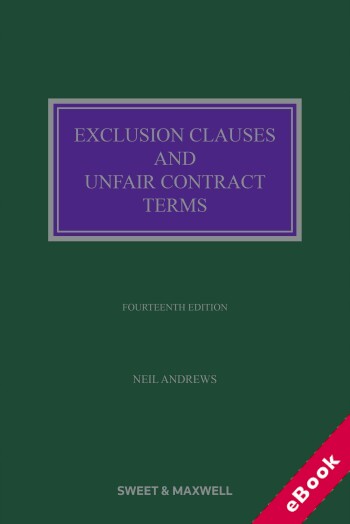
Exclusion Clauses and Unfair Contract Terms examines, in a detailed, practical, and incisive manner, this important area of contract law. It provides guidance to the practitioner on drafting and using exclusion clauses effectively within the formative phase of a contract. Additionally, it offers commentary on the possibility of challenging an exclusion clause. The text deals with exclusion clauses and unfair contract terms in the context of both commercial and consumer contracts, considering the legal tests which are applied to determine whether the exclusion clause has been successfully incorporated, how it should be interpreted, and the extent to which it might be invalidated at Common Law and under statute.
Key features:
New to this edition: